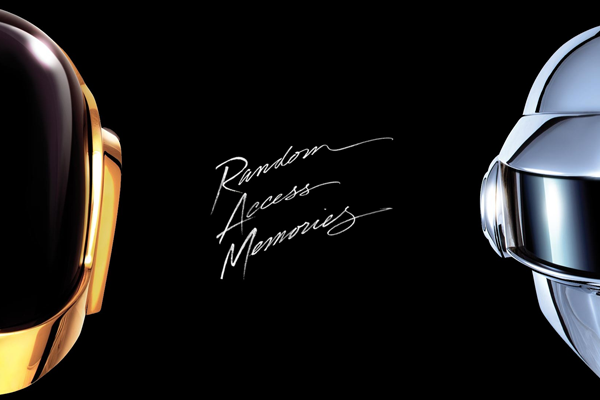Daft Punk - Random Access Memories
Daft Side of the Moon.
“Let the music of your life give life back to music.” So go the opening lines of Daft Punk’s eagerly-awaited new album, Random Access Memories. It has been eight years since the French house duo’s last studio album and 12 since they revolutionised electronic dance music (EDM) with their seminal album, Discovery. In that decade-and-a-bit, Daft Punk’s sound has been imitated to no end, gradually watered down into the mindless, bass-heavy dross that plagues the airwaves of today.
Daft Punk have openly criticised modern EDM, comparing it to “an energy drink” and saying it is “energy only … it lacks depth. You can have energy in music and dance to it but still have soul.” Random Access Memories takes modern dance music back to its roots – namely the mirrorball-lit disco and funk of the 70s and 80s – to show all the hoodie-wearing EDM kids that the genre was, can and should be about more than just bass drops.
The opener “Give Life Back To Music” announces the album’s scale and intent in extravagant fashion – epic guitar chords and synth arpeggios lighting up the sky like fireworks. It then slips into a retro funk groove performed on live instruments that have been given a modern neon sheen with the help of some vocoded vocals. This juxtaposition of past and future can be found on every one of Random Access Memories’ 13 songs, giving the album a beautifully timeless feel.
The following tracks continue to shatter the norms of modern electronic music: “The Game Of Love” and “Within” are robot-voiced piano ballads with surprising emotional punch, the absolute antithesis of the rabble-rousing, drop-announcing Dalek shouts of the dubstep era. The nine-minute opus “Giorgio By Moroder” begins with a monologue from godfather of disco, Giorgio Moroder, about his early years as a musician, before blooming into a synthesizer-led prog freakout complete with jazz percussion, an acrobatic bassline and turntable scratching. The sounds and their execution hearken back some 40 years, to a time of freewheeling improvisation and self-indulgence, yet not once does “Giorgio” sound dated.
Beginning with Julian “The Strokes” Casablancas’ collaboration on “Instant Crush,” Random Access Memories’ guest-heavy second act is the album’s most exhilarating stretch. Julian’s autotuned vocals work wonders against the backdrop of muted guitar and sympathetic synths, resulting in the most tender and convincing emotional delivery of his career. Along with an extended cut of the smash hit “Get Lucky,” Pharrell guests on album highlight “Lose Yourself To Dance,” a deliciously cheesy collision of 70s funk and 00s pop. He belts his best Michael Jackson impression over steely guitar licks from the legendary Nile Rodgers, hand claps, and channel-switching chants of “come on, come on, come on” from The Robots themselves. The result is mesmerising.
Daft Punk claim that “Touch,” their mammoth collaboration with Muppets composer Paul Williams and Random Access Memories’ centrepiece, is the most complicated piece of music they’ve ever worked on. It’s not hard to hear why: “Touch” glides through a universe of sounds and ideas, from a love-starved soliloquy straight out of a West End musical to a Muppetsy midsection of ragtime piano and brass, before a sky-scraping children’s choir arrives to sing “if love is the answer you’re home, hold on.” It’s the most sprawling, bonkers, un-Daft Punk song Daft Punk has ever written. It’s also the most affecting piece of their career by some margin.
Emerging from the tail end of Random Access Memories for the first time, you can’t help but feel a little bewildered. If you’re anything like me, you came expecting an album of fluoro synthesizers and chunky house beats. Instead, Daft Punk has come out with a 74-minute, genre-hopping, decades-spanning disco-prog-funk odyssey, complete with ballads, orchestral interludes and an Andrew Lloyd Webber moment.
Think of it as one big history lesson for those pesky EDM kids, a grandiose love letter to the music they grew up with, an elaborate backlash against the scene they unwittingly pioneered. I’d say it’s a mixture of all three. Tired with the cold-blooded, future-obsessed EDM of today, Daft Punk chose to go back in order to move forward. The staggeringly ambitious record they’ve emerged with can be named, with some confidence, the best they’ve ever made. Giving life back to music, indeed.




